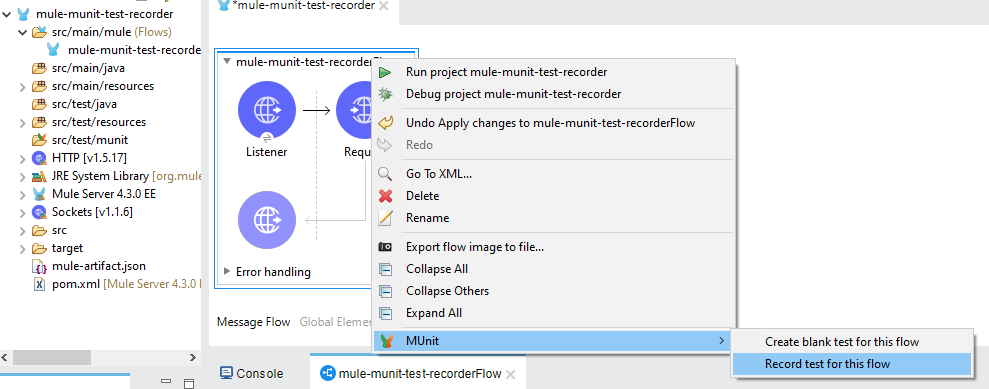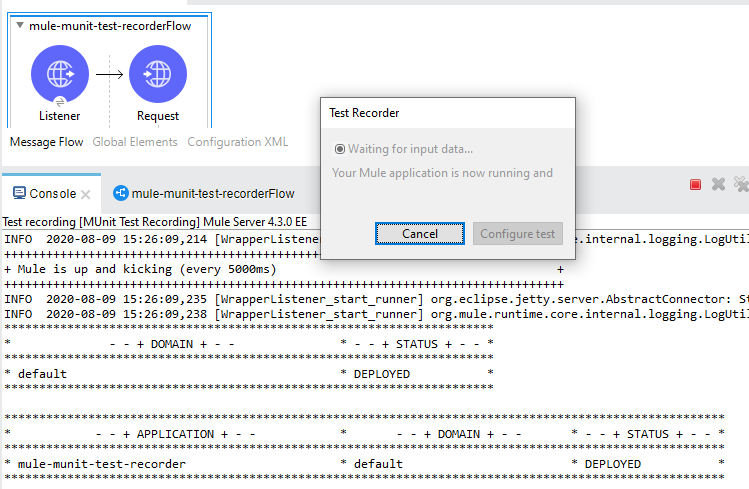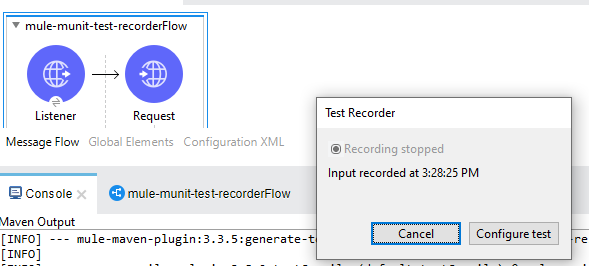Introduction
MUnit is a Mule application testing framework that allows you to build automated tests for your Mule integrations and APIs. MUnit is very well integrated with Anypoint Studio.
Various features available with Mule MUnit:
- Create and build Mule tests by writing Mule code
- Create and build Mule tests by writing Java code
- Verify Message Processor calls
- Mock Message Processor
- Mock outbound endpoints
- Disable outbound endpoints
- Disable flow inbound connectors
- Disable inbound endpoints
- Debug the tests
- View coverage reports
- Spy Message Processor
What MUnit Test Recorder?
MUnit Test Recorder is a new feature introduced with Anypoint Studio 7.5 and it enables developers to records the processing flow and generates automatic unit test cases depending on recorded/captured events.
Prerequisites
- Anypoint Studio 7.5 or Later
- Mule Runtime 4.3 or Later
- MUnit 2.2.5 or Later
- MUnit Plugin 2.5.0 or Later
Limitations of MUnit Test Recorder
- MUnit tests cannot be generated for flows with errors raised inside the flow or even errors are handled by on error continue.
- MUnit tests cannot be generated for the processor before or inside for each processor.
- MUnit test cannot be generated for the flow which is executed successfully but results haven’t reached a destination because the application is killed or terminated.
- As MUnit Test recorder supports the iteration of data like loop and recursivity but it will not supports if the data structure is modified inside the iteration.
- Mocking values resulting from parallel processes causes a mixture of real and mocked data that compromises the execution of the processors that follow in your test.
MUnit allows developers to record the execution of the flow and automatically generated test cases depending on the captured/recorded events and data. It makes the developer’s life easier that they don’t have to spend much of the time in writing the MUnit tests.
Let’s learn how to generate a unit test using the MUnit Test recorder.
To create the MUnit Test case, Right-click on the Mule flow => MUnit => Record test for this flow.

Once you click on the “Record test for this flow”, it will launch the mule application and open the popup and start recording the event.

Now you need to send the request to trigger the flow and once the request is sent, it will record the whole execution/events and you can configure the tests.

#tutorial #integration #mulesoft #anypoint #munit
